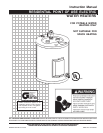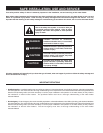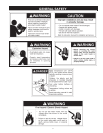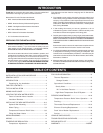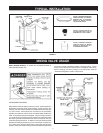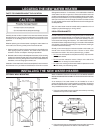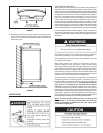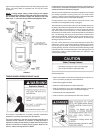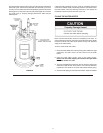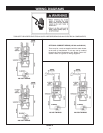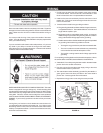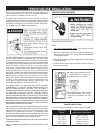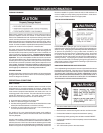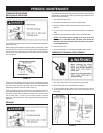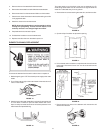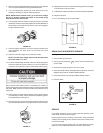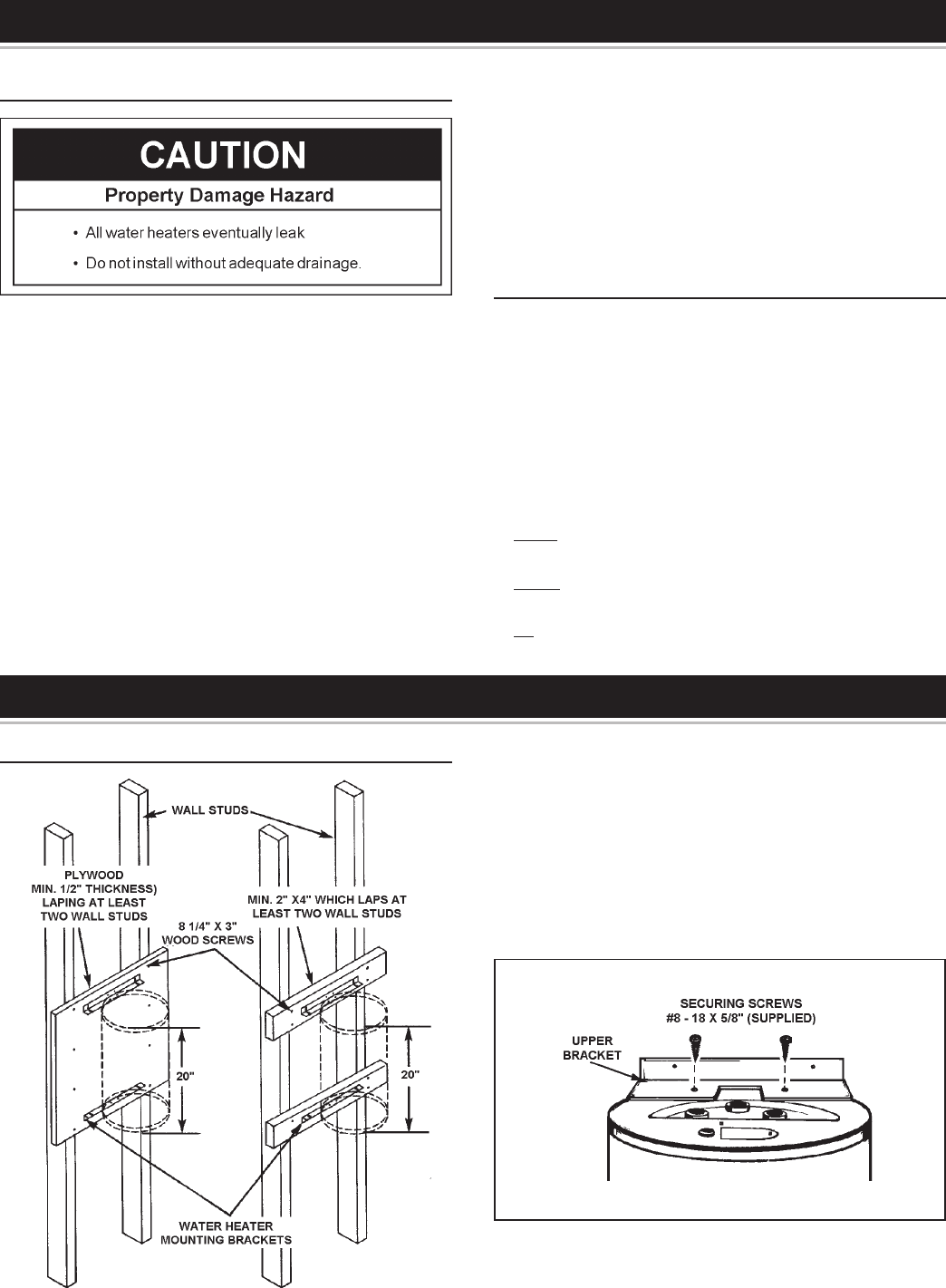
6
FACTS TO CONSIDER ABOUT THE LOCATION
Carefully choose an indoor location for the new water heater, because
the placement is a very important consideration for the safety of the
occupants in the building and for the most economical use of the
appliance.
Whether replacing an old water heater or putting the water heater in a
new location, the following critical points must be observed:
1. Select a location indoors as close as practical or centralized to the
water piping system as possible. The water heater should be
located in an area not subject to freezing temperatures.
2. Selected location must provide adequate clearances (4”) for servicing
parts such as the thermostats, drain valve and relief valve. Adequate
clearance for servicing this appliance should be considered before
installation, such as changing the anodes, etc.
Installation of the water heater must be accomplished in such a manner
that if the tank or any connections should leak, the flow will not cause
LOCATING THE NEW WATER HEATER
damage to the structure. For this reason, it is not advisable to install the
water heater in an attic or upper floor. When such locations cannot be
avoided, a suitable drain pan should be installed under the water heater.
Drain pans are available from your local plumbing contractor. Such a
drain pan must have a minimum length and width of at least 2 inches
(51 mm) greater that the water heater dimensions and must be piped to
an adequate drain.
Also, the water heater must be located and/or protected so it is not
subject to physical damage by a moving vehicle.
INSULATION BLANKETS
Insulation blankets are available to the general public for external use
on electric water heaters but are not necessary with this product. The
purpose of an insulation blanket is to reduce the standby heat loss
encountered with storage tank heaters. Your water heater meets or
exceeds the National Appliance Energy Conversation Act standards
with respect to insulation and standby loss requirements, making an
insulation blanket unnecessary.
Should you choose to apply an insulation blanket to this heater, you
should follow these instructions below. Failure to follow these
instructions can result in fire, serious personal injury, or death.
•
Do not cover the temperature and pressure relief (T & P) valve with
an insulation blanket.
•
Do not cover the instruction manual. Keep it on the side of the
water heater or nearby for future reference.
•
Do obtain new warning and instruction labels for placement on the
blanket directly over the existing labels.
INSTALLING THE NEW WATER HEATER
OPTIONAL WALL MOUNTING
FIGURE 3.
WALL CONSTRUCTION AT THE POINT OF THE WATER HEATER
INSTALLATION MUST BE CAPABLE OF SUPPORTING AT LEAST 200
POUNDS.
As an example: if the water heater is to be installed on a wall of
gypsum board (dry wall) or other material not capable of supporting
the water heater filled with water, additional bracing will be necessary.
Two possibilities are shown, see Figure 3.
1. Using two sheet metal screws supplied, secure the top mounting
bracket to the top of the water heater.
FIGURE 4.
2. Using the remaining two sheet metal screws provided, secure the
bottom mounting bracket to the bottom of the water heater.



